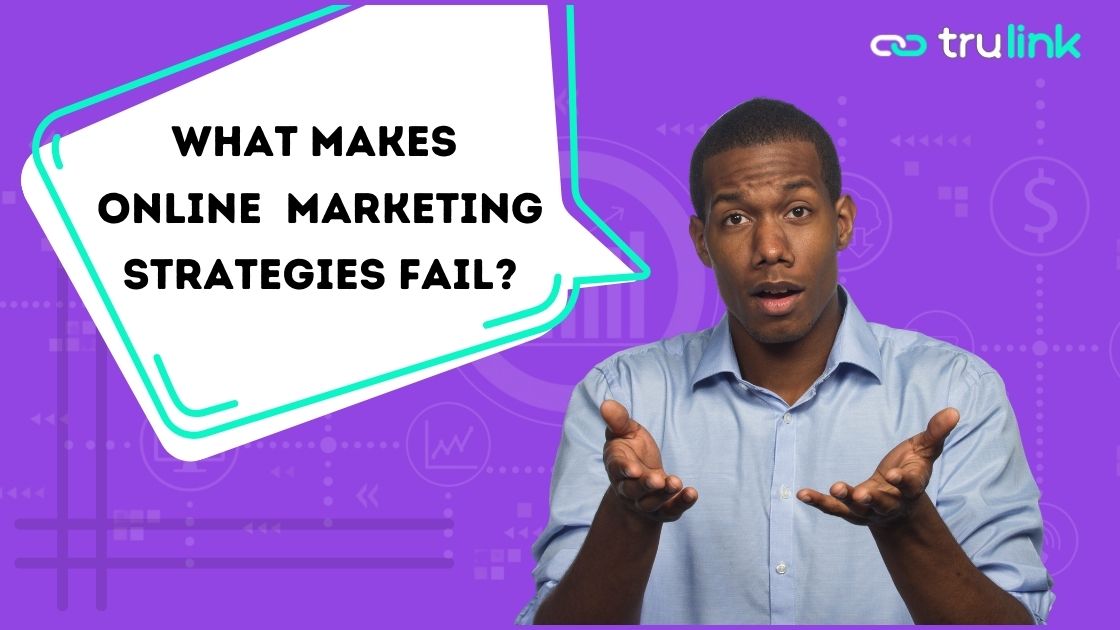Blog
What Makes Online Marketing Strategies Succeed?
by Timothy Munene, September 08 2022

A great online marketing strategy can mean the difference between surviving and thriving in today's competitive business landscape. According to DataReportal, more than 60% of the global population is now online and spending close to seven hours daily on the internet. More and more companies are utilizing digital advertising to reach their customers, as evidenced by the 15.6% jump in advertising spend from last year. So what makes for a successful online marketing strategy?
1. A Great Website Design
How a website looks and feels impacts how a brand is perceived. A poorly designed website can tank a business's credibility, while a visually appealing one can extend its reach and help generate leads. Website design may not be considered a marketing strategy, but for the customer, it serves as a window into a company. You cannot overlook it when preparing a marketing strategy. It is the center of your digital advertising efforts, so it must be well thought out if you plan on keeping visitors there for any amount of time. A website that is user-friendly, modern, updated, visually attractive, cohesive, responsive e.tc., has a much better chance of having its marketing efforts yield positive results.
2. A Serious Social Media Presence
Social media increases a brand's awareness and drives engagement among producers and consumers. It is a way for companies to interact with and learn more about their audience, as well as differentiate their brand. As part of your marketing strategy, social media will help drive traffic, generate leads, build better business-consumer relationships, gain audience insights, and more.
The data also reflects the importance of social media. 54% of social browsers research products on social media, while 71% of consumers are more likely to recommend a brand with which they've had a positive social media experience. A successful social media plan needs to know the audience and the platforms they use, measurable goals and objectives, and analytics that inform you on what areas need improvement. According to LOCALiQ Marketing Lab, your posts should be 70% informational, 20% emotional, and 10% promotional. In addition, maintain a cross-channel presence so that you can meet your customers across several touchpoints because they frequent more than one platform.
3. Having SMART Objectives
You can't just embark on a marketing campaign on a whim. It's vital to the campaign's success that you have Specific, Measurable, Attainable, Relevant, and Time-bound (SMART) objectives that match up with your digital marketing goals. This means setting appropriate KPIs at the beginning. These will help you stay on target and understand which of your efforts are productive and which need tweaking. For example, you need to ask yourself what you are measuring and how a particular KPI is related to your goal. Consider too how often you need to collect data and the data's relevance to the actual user experience. Don't just collect data but have it be meaningful to the overall plan.
4. Effective Content
Creating valuable and educational content such as articles, blogs, videos, podcasts, graphics, and other digital content makes you relevant to buyers seeking the information you provide. Create content with CTAs that lead users to make a purchase. Great content gives potential customers a reason to pick you over your competitors, but you first need to know what information they seek. This can be through social media, surveys, Google analytics, customer reviews, etc.
Once you have that, provide unique, valuable, in-depth content that answers their queries. Producing long-form authoritative content such as a pillar page can have a huge effect on your SEO. In fact, the average content length for Google's first page rankings is over 2,000 words. You can also create evergreen content (continually relevant content), e.g., how-to tutorials, encyclopedia-like entries, a PDF e-book from old blogs, forever fresh topics like finance, etc. However, do not plagiarize yourself, as this will hurt your SEO; instead, create core pieces that work alongside your strategy.
Lastly, optimize your sales funnel from outreach to conversion. Understand the buyer's journey and fine-tune every phase for better conversions. Work on the factors that impact the buyer's journey and optimize your SEO tactics. By leveraging data to gain accurate insights, you'll be on the right path to making a successful online marketing strategy.
